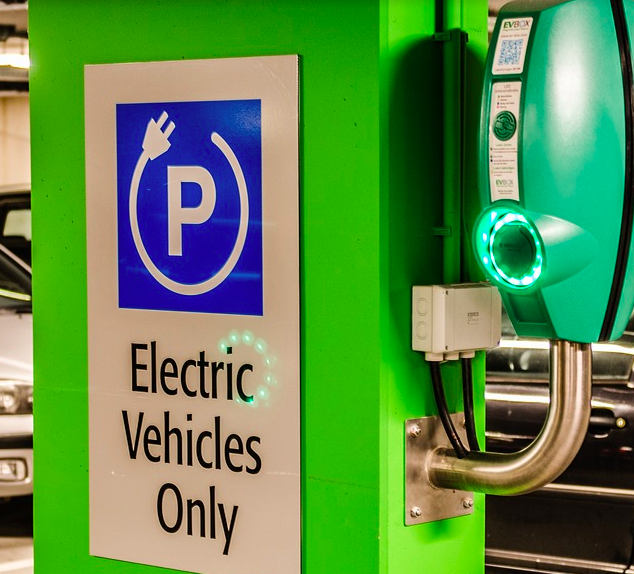Tell our readers about RevFin , Kindly take us through your journey since inception. What have been your major achievements?
We are an award-winning digital lending platform financing commercial electric vehicles. Our primary intent is to make loans convenient and accessible to financially excluded individuals for clean technology.
Having already established a nationwide presence with our EV financing in 19 states, and over 15 OEM and Fleet Operator partnerships, Revfin is also the most widely spread. We have gained significant market share in several states like Bihar (15%), Uttarakhand (30%) and Jharkhand (30%). In fact, in Uttarakhand and Jharkhand, the market share was acquired within a few months of launch.
So far, Revfin has disbursed 500 Mn loans for financing EV vehicles. The vehicles financed by our company have impacted over 1 million lives and driven over 75 million green kilometers. In 2021, our business scaled 8X in loan disbursements compared to 2020, generating a 300% YoY revenue growth of INR 73 Mn. Meanwhile, our distribution sites increased to 300 from 30 in 2020 and we are now targeting to reach 1,500 in 2022. We have even expanded our team size by 3x.

Kindly give some insights into your segment of operation in EV financing. What is your geographical location? Share some data about your – market size, challenges, opportunities, key metrics, etc. How do you see the future growth of this market, along with your company’s growth?
The pandemic brought a significant thrust in demand for electric vehicles for personal use, last-mile mobility, and hyperlocal deliveries. According to an independent study by CEEW Centre for Energy Finance (CEEW-CEF), the EV market in India will be a US$206 billion opportunity by 2030 if India maintains steady progress to meet its ambitious 2030 target. Another report by India Energy Storage Alliance (IESA) projects that the Indian EV market will grow at a CAGR of 36 percent by 2026.
Attractive economics, the burden of oil imports, increasing pollution, and as international commitments to combat global climate change are among key factors motivating India’s central and state governments to speed up the transition to e-mobility. This has increased the demand for EVs substantially.
With the electric vehicle financing segment being our key focus area attributing to its 9% annual growth, we are currently serving the EV consumer segment Pan-India with a presence in 19 states and a significant market share in states like Bihar (15%), Uttarakhand (30%) and Jharkhand (30%).
While currently, the drivers financed by Revfin have driven over 75 million green kilometres so far, creating a significant climate impact, we are planning to increase it to 500 million in 2022.
Who is your target buyer or target audience and what is value proposition to firstly the buyers, and secondly, the investor?
RevFin was established to enable financing of electric three-wheelers in semi-urban areas, Tier 3 and Tier 4 towns. Currently serving the EV consumer segment pan India with major operations across UP, Bihar, Haryana, Punjab, Rajasthan, Delhi, Jharkhand, Madhya Pradesh and West Bengal, we plan to stay focused on this industry looking at the bigger opportunity and its potentially high scalability.
What is your view for the company and the sector – Pre pandemic, during pandemic and planned for post-pandemic?
As mentioned earlier, we made some major decisions during the pandemic. Giving timely salaries, raises, and bonuses to employees as normal during the past two years led to increased productivity and a very low attrition rate.
We even provided interest-free loans and a moratorium on all loan repayments to our daily wage customers. This helped us gain our customers’ trust and they started repaying their loans, including any arrears once the lockdown opened. As a result, we managed to improve our company’s balance sheet and increase our ability to raise funds.
Revfin also reinforced its capabilities in technology and distribution by bringing in a flexible architecture with the ability to create multiple products.
While it is too early to determine when the pandemic will subside and what the world will look like after that, we are planning to expand our operations in the immediate future with the ease in restrictions. We have taken the last few months to develop new distribution partnerships for growth. Our on-ground presence and capabilities have also expanded significantly. This has helped us increase our loan disbursements and expand Revfin’s market share.
What is your vision for RevFin, in terms of, (1) Near term future, over the 2022, (2) Long term, over a 4 years horizon. (We need relevant information to answer this question)
The pandemic has increased the demand for electric vehicles for personal use as well as for last-mile mobility and hyperlocal deliveries.
This increased adoption has impacted our revenues tremendously, driving a 2.5X year-on-year growth in revenues, 1.7X year-on-year growth in balance and 2.1X year-on-year growth in customers by the end of September 2021.
While we have already disbursed 500 million towards EV financing, going forward, we are targeting to finance over 400000 million for electric vehicles in the next 5 years.
How RevFin is leveraging technologies and what kinds of technologies the company has adopted in its day to day operations.
RevFin uses innovative techniques like psychometrics, biometrics, and gamification in its day-to-day operations to generate user data as part of a loan application journey. This data is then processed using machine learning algorithms to underwrite loans in real-time rather than relying on historical data of individuals.
As we follow a low/no-touch digital model, we use biometrics to establish identity and presence through artificial intelligence-based algorithms. The unique innovations allow Revfin to approve loans for users, which traditional lenders refuse to touch. The decision time is under 15 minutes, which is faster than what high credit users take.
We are also in the process of developing voice-based authentication and sentiment determination techniques.
This interview was authored by Vishwasjeet Singh, Editor-in-Chief, Estrade Business News. To share more stories kindly email: vishwasjeet@estrade.in






